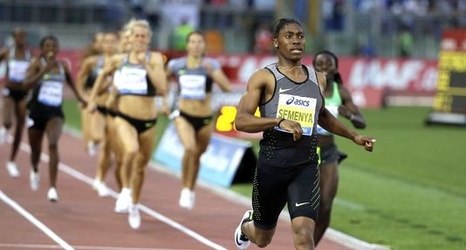STELLENBOSCH, South Africa (AP) — In the wake of the Caster Semenya sex-test scandal at the 2009 world championships, track and field's international governing body introduced contentious rules making women with a condition that caused them to produce high levels of natural testosterone ineligible to compete until they artificially lowered those levels.
The IAAF's hyperandrogenism regulations, imposed in 2011 and applied to Semenya and others, were criticized as unethical, discriminatory and against the Olympic charter, and without scientific backing. Last year, they were challenged at sport's highest court by an Indian sprinter and shelved until at least July 2017.
